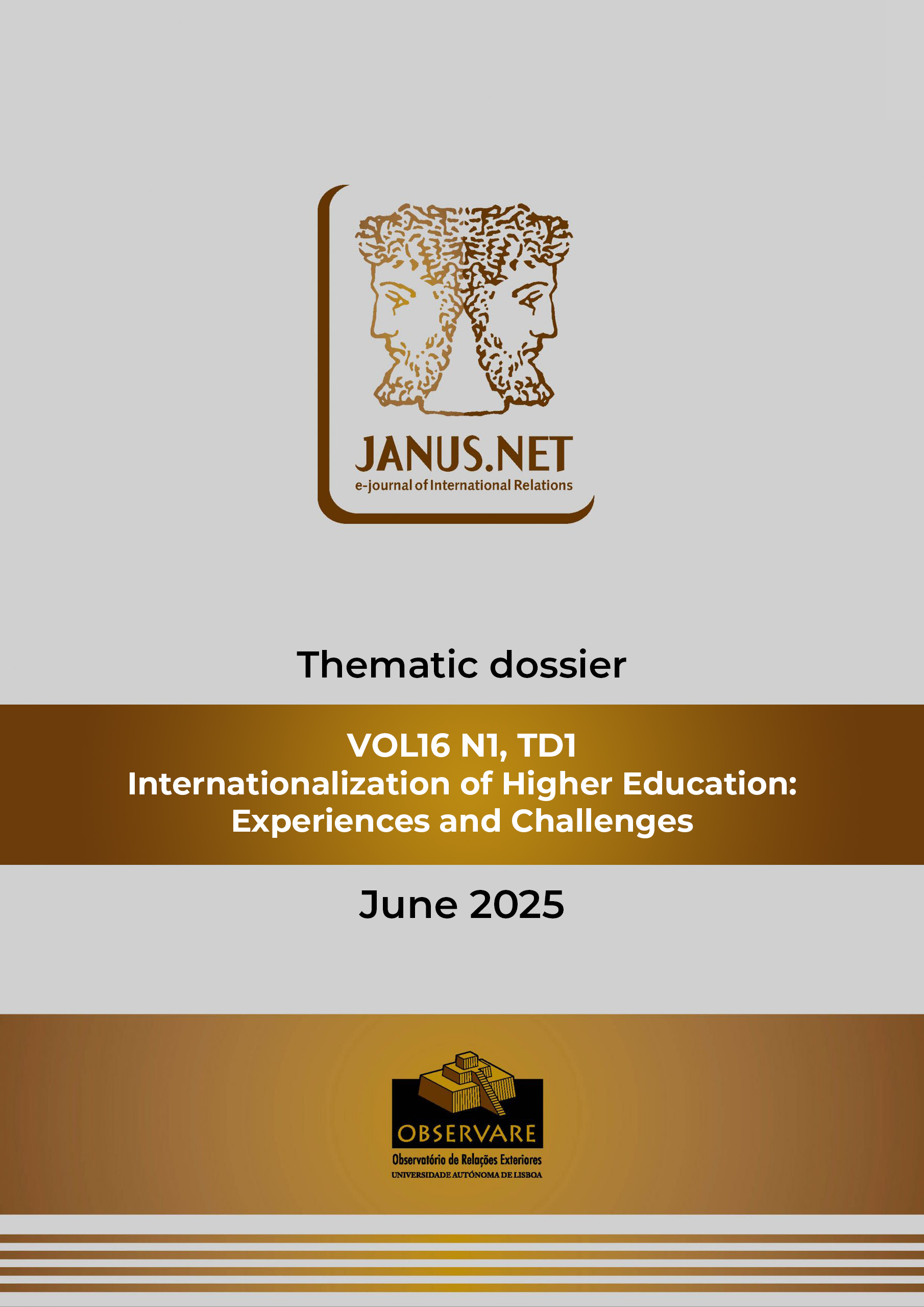Vol. 16 N.º 1, TD1 (2025): Thematic Dossier – Internationalization of Higher Education: Experiences and Challenges

Internationalization, in the context of higher education, refers not only to the mobility of students, faculty, and academic programs, but also to the integration of international dimensions into curricula, research agendas, institutional strategies, and campus cultures. At the same time, Higher Education Institutions are increasingly expected to serve as agents of social transformation, embedding internationalization within broader goals of equity, sustainability, and human development. While these responsibilities entail complex challenges, they also present compelling opportunities for fostering intercultural dialogue, enhancing global competencies, and driving societal innovation on a global scale.
This thematic dossier, titled Internationalization of Higher Education: Experiences and Challenges, brings together a series of eleven scholarly articles that explore the multifaceted nature of internationalization in higher education, offering critical insights into its driving forces, lived realities, and the pressing challenges it entails. It features contributions that interrogate both the opportunities and tensions inherent in the internationalization process. Rather than conceptualizing internationalization as a fixed policy model, this issue examines it as a fluid, context-sensitive process intersecting with digital transformation, demographic transitions, geopolitical volatility, and institutional complexity. The articles compiled in this dossier approach the theme from a variety of disciplinary, methodological, and geographical perspectives. Indeed, the authors come from diverse academic fields — ranging from Education Sciences to International Relations, and from Law to Public Administration — and are affiliated with various higher education institutions across different countries, including Bulgaria, Brazil, Spain, Hungary, India, Kazakhstan, Portugal, Türkiye, and Uganda. Together, they aim to contribute to a deeper understanding of how internationalization unfolds in practice, what it means for students, educators, and institutions, and how it can be navigated responsibly and ethically.

